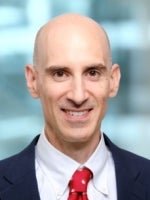On June 13, 2025, federal prosecutors in the Eastern District of New York charged Dao Yin, a 2024 Democratic candidate for a New York State Assembly seat in Queens County, with wire fraud in connection with New York State’s newly implemented Public Campaign Finance Program (PCFP). Federal prosecutors allege that Yin and his campaign fabricated public campaign finance contribution cards, including forged signatures, to illegally claim over $160,000 in campaign matching funds.
The wire fraud charge is brought under 18 U.S.C. § 1343, which criminalizes schemes to defraud via interstate wire communications and carries a maximum sentence of 20 years’ imprisonment. Prosecutors argue that Yin’s electronic submission of fraudulent contribution cards to the New York State Public Campaign Finance Board constitutes wire fraud. The Yin prosecution, which was led by the Eastern District’s Public Integrity Section and the Public Integrity Section of the Justice Department’s Criminal Division, marks the first time anyone has been charged with defrauding New York State’s public campaign finance program.
Yin allegedly submitted forged donation cards to the Public Campaign Finance Board, allowing him to obtain approximately $162,800 in public funds for his campaign—nearly the maximum allocation of public funds for an Assembly primary election. This alleged scheme caught the attention of the New York media in June of 2024. In August 2024, federal authorities began their investigation of Dao Yin by interviewing individuals whose signatures appeared to have been forged on the documents filed by the campaign with the Public Campaign Finance Board.
Although this is the first prosecution tied to New York State’s public campaign finance program, a number of individuals have been prosecuted for defrauding New York City’s much older public campaign finance program. For instance, State Sen. John Liu’s 2013 campaign for New York City Mayor was fined by the New York City Campaign Finance Board for a straw donor scheme to obtain public campaign funds. Former workers for Liu’s campaign were also charged and convicted of federal fraud charges in connection with the scheme.
More recently, the treasurer for a 2021 candidate for Brooklyn Borough President pleaded guilty to wire fraud in connection to a straw donor scheme to obtain public campaign funds for her candidate. The New York City Campaign Finance Board determined that the campaign’s submissions were illegitimate and never paid out any public campaign funds to the candidate’s campaign.
The 2024 elections for the New York State Legislature were the first elections where candidates could obtain public funds for their campaigns through the state public campaign finance program. A version of the program was adopted by a commission created by the governor and state legislature, but the commission’s work, including the public campaign finance program it adopted, was challenged for violating the state constitution’s requirement that only the state legislature make laws for the State of New York. A state Supreme Court Justice sitting in Niagara County agreed and invalidated the public campaign finance program adopted by the commission. The state legislature, however, enacted the program in its entirety as part of the 2020 New York State budget.
In 2026, candidates for all 213 seats in the New York State Legislature will once again be eligible to participate in the public campaign finance program and obtain public funds for their campaigns. Additionally, candidates for statewide office, including gubernatorial candidates, will be able for the first time to participate in the public campaign finance program.
Candidates participating in the program should understand that failing to comply with the reporting requirements of the program could result in more than a fine from the PCFB or a refusal by the PCFB to release funds to the campaign; reporting violations could result in a criminal investigation and prosecution. Filing materially false reports with the PCFB could, under certain circumstances, constitute wire fraud. Candidates and their attorneys should take this seriously.
Candidates participating in the program would be wise to seek advice from legal and compliance professionals that have knowledge and experience with New York’s campaign finance law and the public campaign finance program. Relying on volunteers, friends, and relatives with little understanding of the program or the potential penalties for failing to adhere to the program’s requirements is imprudent for candidates seeking to obtain public funds for their campaigns.
The Dao Yin case demonstrates that federal authorities won’t take a backseat to state regulators or prosecutors when state candidates attempt to fraudulently obtain public funds for their campaigns. If state authorities don’t take action, federal prosecutors will. For attorneys advising New York candidates participating in the state’s public campaign finance program, the message is clear: ensure airtight campaign finance compliance by your clients or prepare them for criminal ramifications.
All of the views and opinions expressed in this article are those of the author and not necessarily those of The National Law Review.





 />i
/>i

